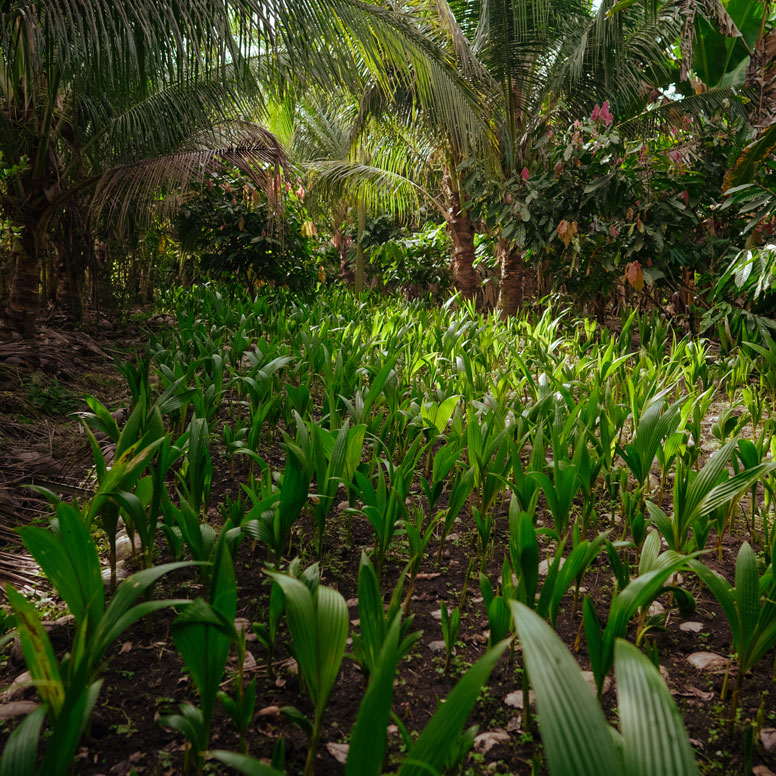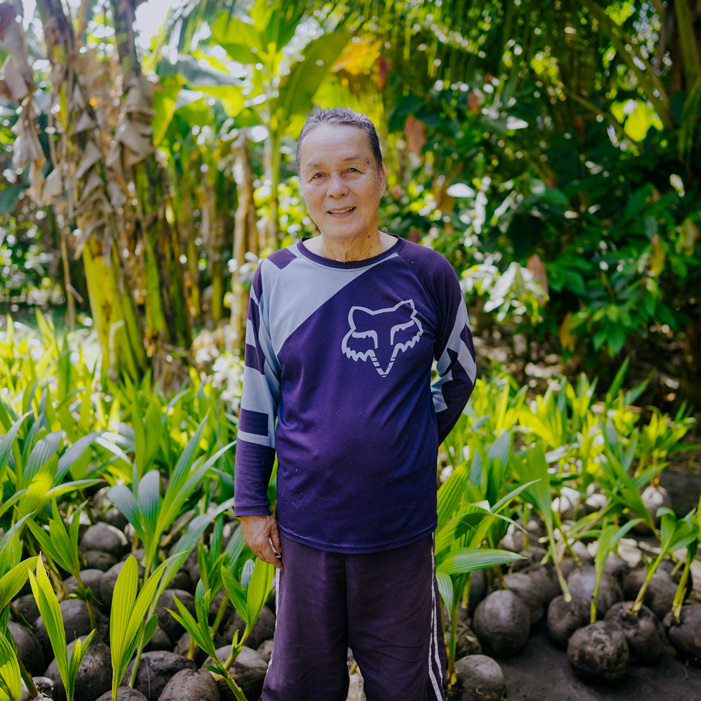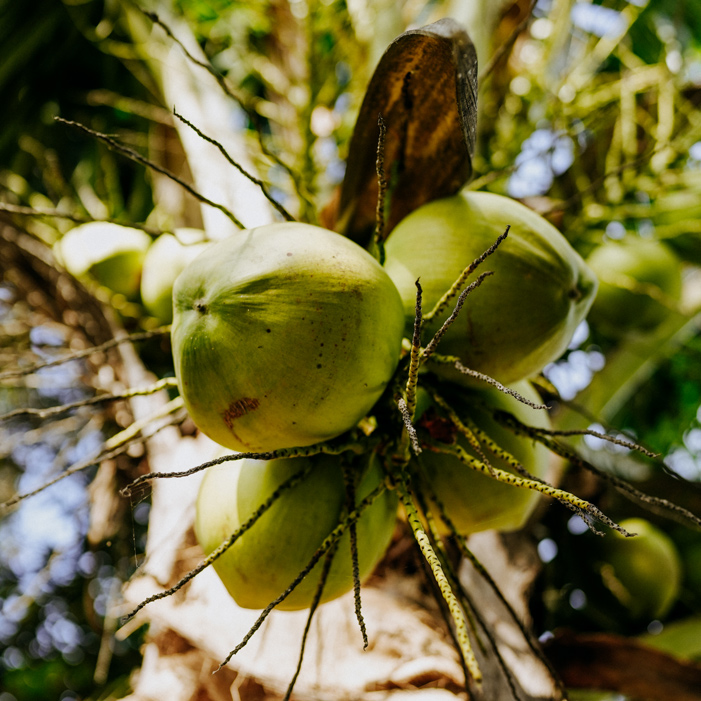The Company’s transfer agent is American Transfer & Trust Company, LLC (AST).
- Email: help@astfinancial.com
- Telephone:
(800) 937- 5449
(718) 921- 8124
Since we created the Vita Coco Project® in 2014, we have partnered with non-profit organizations around the world, from the Philippines to Brazil, to support and empower our coconut farming communities. Through initiatives like farmer training, we help encourage regenerative farming practices that protect biodiversity and enhance soil health quality on coconut farms.
We support our partners, like HOPE and the Silvermill Foundation, with their on-the-ground impact initiatives in our growing communities, which include producing demonstration plots in our local growing regions to teach our farmers efficient growing practices.
Here are some of the initiatives currently under way to help farmers continue to preserve the long-term sustainability and quality of their land:
- Composting and Organic Fertilizer Programs: Through educational programs, farmers receive guidance on implementing composting and organic fertilizer programs to enrich the soil naturally and reduce the need for synthetic fertilizer.
- Crop Management Workshops: Workshops help equip farmers with advanced crop management techniques, such as intercropping, helping them optimize yields, diversify income sources, and minimize environmental impact.
- Water and Soil Conservation Programs: Through learning natural resource conservation practices, such as using drip irrigation and growing cover crops, farmers can reduce their vulnerability to extreme weather and erosion.
- Training Courses on Natural Pollinators: Bees and other natural pollinators are vital for crop health, and through our partners’ trainings, farmers learn about the importance of pollinators and how to create pollinator-friendly environments.
Because our coconuts are grown in various regions with different conditions, factors like weather and soil type can affect coconut production. We recognize the importance of helping farmers plant a diverse array of coconut tree varieties suitable to their farming environments, ensuring a steady supply of coconut harvesting over time, while also withstanding the challenges of climate change.
Through our partnership with HOPE and their microbreeding program initiative, we are helping develop a pilot farm to teach farmers the best breeding practices to grow hybrid seedlings. These hybrids combine the desirable traits of different coconut tree varieties, such as quicker coconut cultivation and stronger resilience to extreme weather conditions. This is also how we help address aging coconut trees and promote the overall biodiversity of the local ecosystem that we source from.



During the growing process, the seedlings are nurtured until they reach a certain size and are then pulled out and distributed to the farmers.
Coconut farmer and seedling supplier Ramon Araneta has planted 910 coconut trees on his five hectares of farmland using new and improved planting methods that he also teaches other farmers to implement.
Coconuts ripen on the trees—a close-up into the growing process.
In April 2023, we announced our Seedlings for Sustainability™ initiative to help distribute and facilitate the planting of up to 10 million seedlings and trees across the globe by 2030. We recognize the significance of responsible land management and are dedicated to offering resources to support coconut farming areas, the local communities of our consumers, and forests.
To address the aging coconut tree population and build a resilient supply chain, we collaborate with our on-the-ground partners, like HOPE and the Silvermill Foundation, to distribute seedlings. This effort aims to cultivate a future generation of high-quality nut-producing trees, benefiting both coconut growers and the industry at large.
We also facilitate the distribution of a diverse range of seeds and seedlings to promote intercropping. This process involves cultivating agricultural crops that complement coconut trees, such as cacao, bananas, coffee, vanilla, and other tropical vegetation. Intercropping can help boost the economic potential for farmers while replenishing soil nutrients and reducing the growers’ reliance on added fertilizers.
